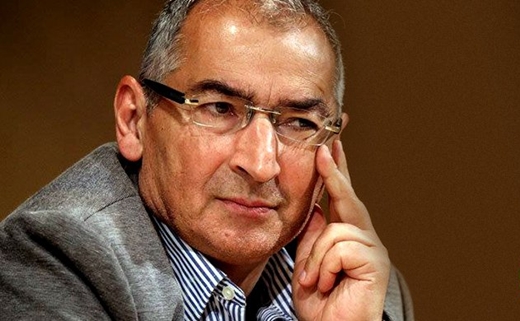What does the president mean by the second or domestic Barjam [the Farsi term for Joint Comprehensive Plan of Action, or JCPOA]? What requirements are needed for succeeding in domestic Barjam? What should the main goal of domestic Barjam be?
Dr. Sadegh Zibakalam, a university lecture and reformist activist, said in his interview with Fararu News (in Farsi) that what the president means by national Barjam is not exactly clear. If his point is a type of national reconciliation and power-sharing between reformists and conservatives, he is on a wild goose chase, because there is no way that the conservatives will back off. Elections are the only way in which we can hope for the continued participation of reformists and independent individuals in areas which can make a difference.
What follows is a summary of the interview with this reformist activist, as translated by IFP.
“However, looking at the main Barjam (JCPOA) on one side, and the country’s domestic conditions on the other, it seems that what Mr. Rouhani means by national Barjam is a sort of a ceasefire, national unity and national reconciliation between the two major currents of conservatives and reformists.”
“Mr. Rouhani says that the conflicts between the conservatives and reformists are not at all as severe as Iran’s disagreements with the US were. When Iran and the USA can make a deal and reach a sort of ceasefire, then why can’t we move past this hostile attitude toward each other within the country?”
“I believe that Mr. Rouhani is on a wild goose chase, and he won’t be able to realize this idea for the same reasons that Hashemi Rafsanjani couldn’t achieve this national reconciliation.”
“Regarding the national Barjam, we only can see a one-way tendency from people like Hashemi and Rouhani. The conservatives, on the other side of this deal, have no need or desire for this reconciliation. In fact, it’s contrary to their desires and interests to do such a thing.”
“The conservatives were only ready to give up the Executive, which was inevitable anyway, since the president must be chosen by election. However, they won’t give up their power in areas where this imperative doesn’t exist, like in Parliament, where they can stop their opponents.”
Responding to the question, “What should those who are seeking the implementation of a national Barjam keep in mind as being their goal?” Zibakalam said: “If there’s no pressure on conservatives, there’s no reason for them to give over part of their power.”
He quoted the Persian saying, “Rights are for taking, not for giving,” saying, “The reformists should try to increase their power in arenas like Parliament.”
Referring to his own prediction of the success or failure of a national Barjam, he commented, “National Barjam is a waste of time in sectors where it’s voluntary for the conservatives, but in the directly elected sectors, we can take power away from them, just like we did in June 2013, when we took the Executive from them. On 26th February 2016, we should also stop hardliners from entering Parliament, by sending independent individuals as candidates.”
